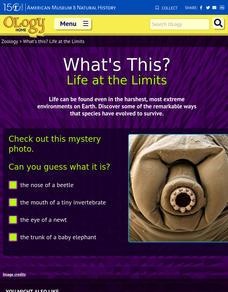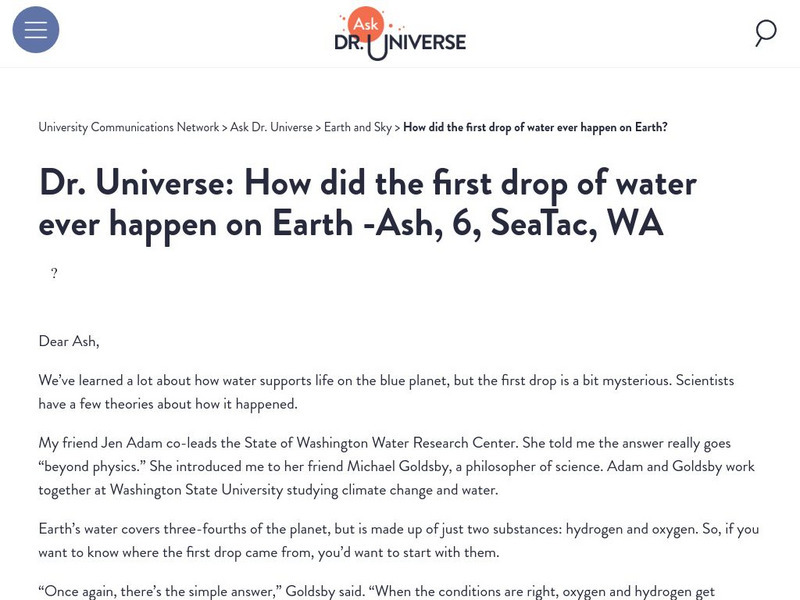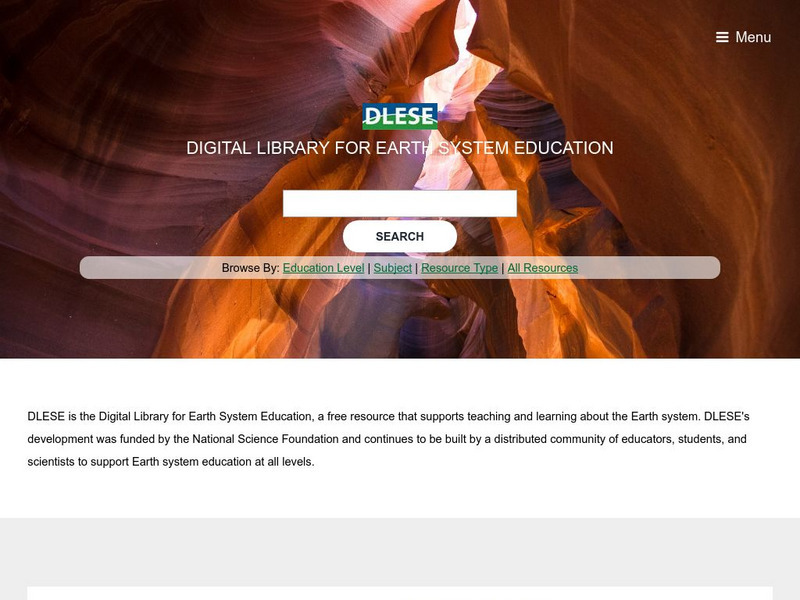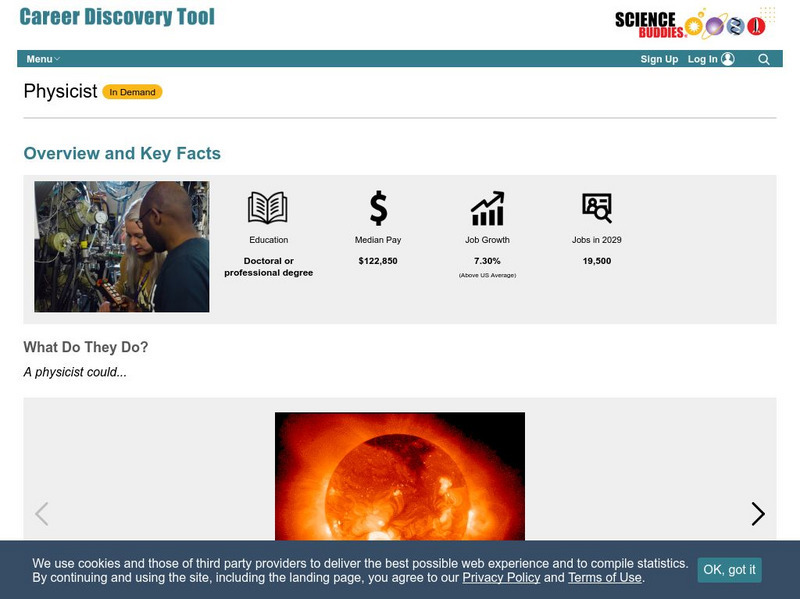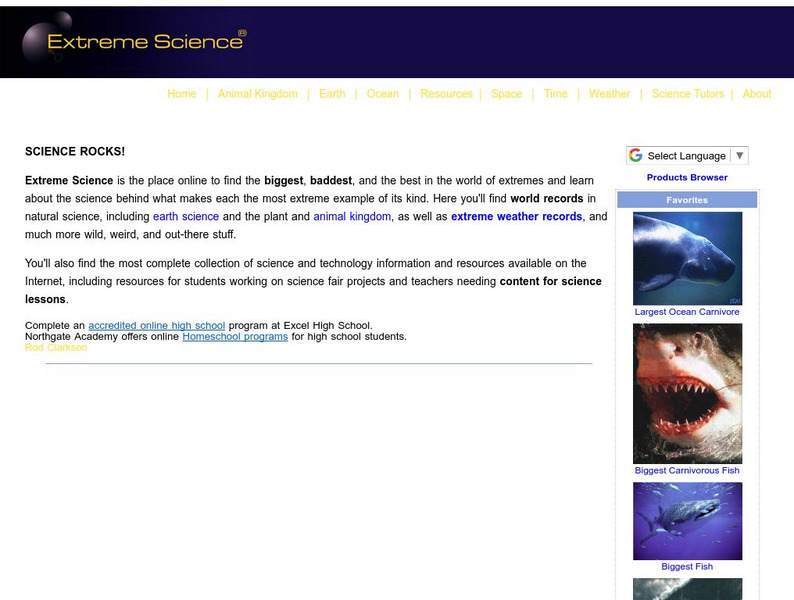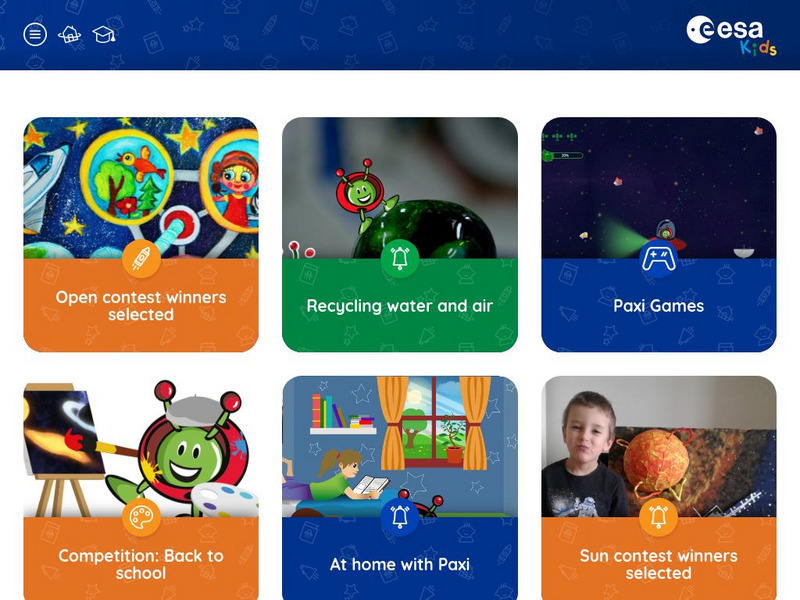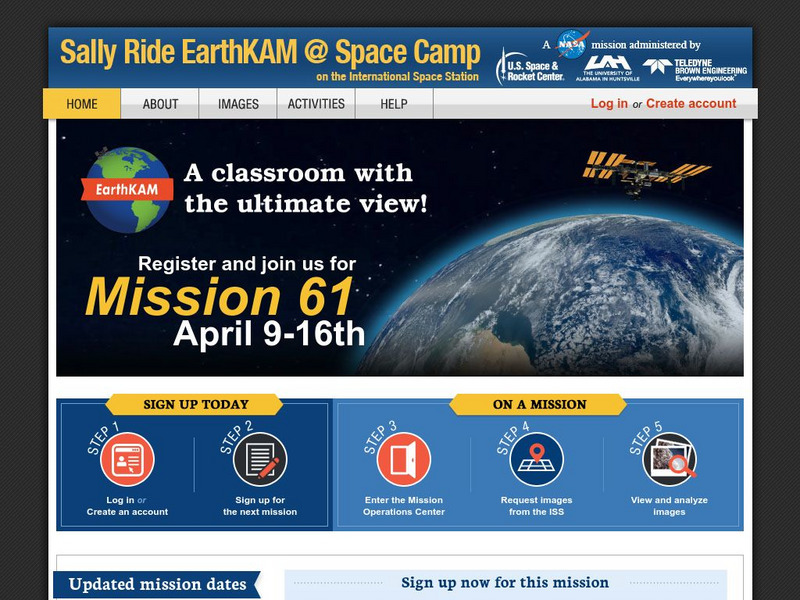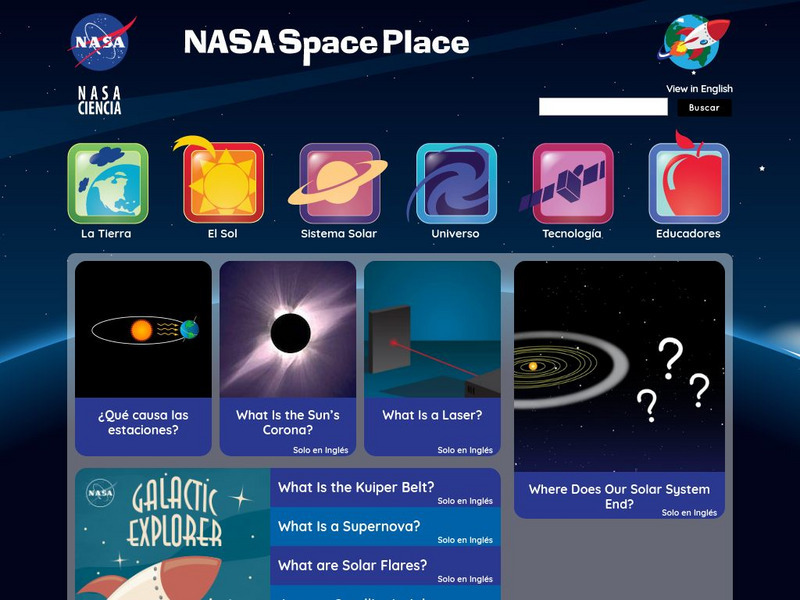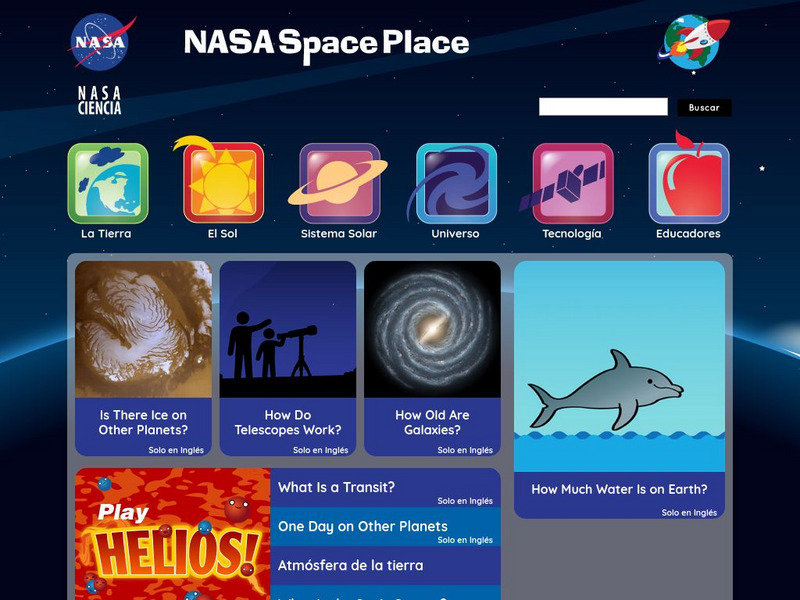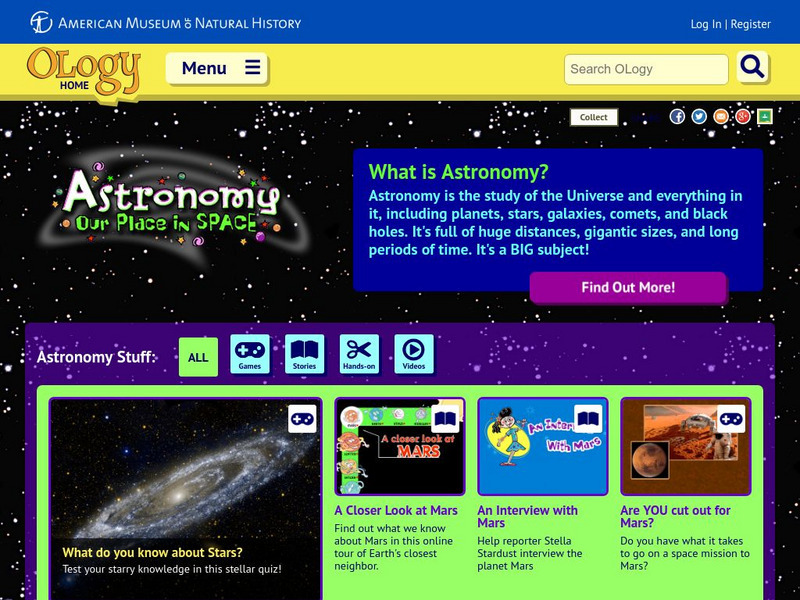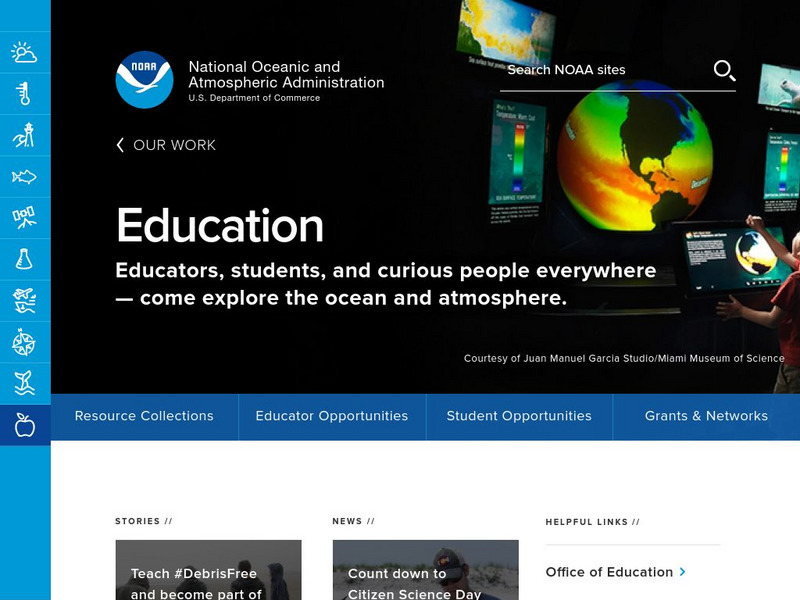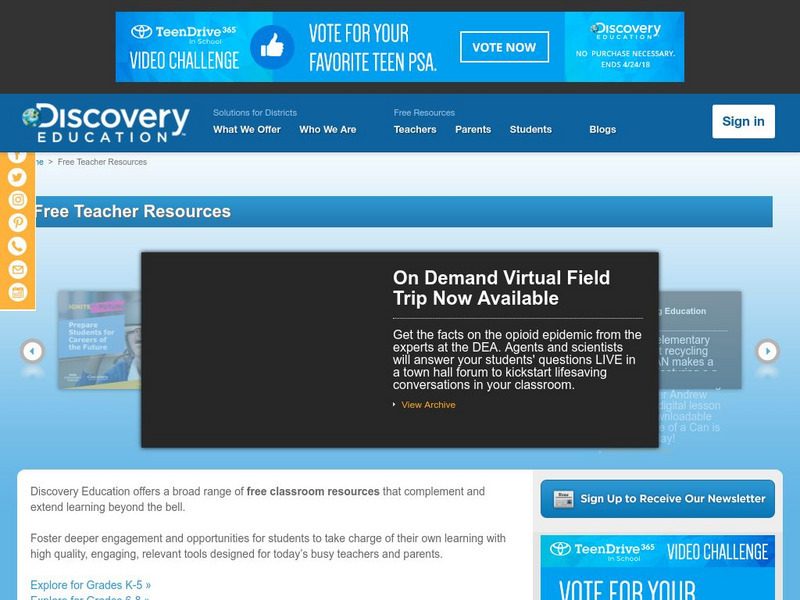American Museum of Natural History
What is the Greenhouse Effect?
Without the greenhouse effect, Earth would not be inhabitable. A thorough online resource describes the greenhouse effect and how it occurs. The source highlights the different types of gases that work together to absorb the sun's...
Weber State University
The Sun and the Seasons
Why is there more daylight in June than in December if you live above the equator? How does the angle of sunlight shift throughout the year? Answer these questions and more with an interactive article about the sun, its path through the...
American Museum of Natural History
Journey to the Stars
Fifteen detailed pictures and informative captions delve deep into the exploration of stars—their life cycle and importance in the universe.
American Museum of Natural History
Planetary Mysteries
Get to know our little part of the vast universe. Learners read about the common and not-so-common facts about each of the planets in the solar system. The interactive lesson includes a large amount of information as well as a quiz to...
American Museum of Natural History
The Amazing Mundo
Rocks and minerals are great on their own, but they also turn into some pretty amazing stuff! An online lesson explains the different types of materials we get from rocks and minerals, including glass, plastic, and coins. An embedded...
American Museum of Natural History
Meet the Universe's Main Attraction ... Gravity
Learners read a short description about gravity and what it does and then explore the two ideas about how gravity works. After gaining a better understanding of the concept, individuals participate in a thorough experiment on what would...
American Museum of Natural History
What's This? Life at the Limits
There are some amazing ways species evolve to survive. From large ears to sneezing salt, learners read about these interesting adaptations in an interactive lesson. Great to supplement an in-class lesson, it also works well as a remote...
Washington State University
Washington State University: Ask Dr. Universe: How Did the First Drop of Water Ever Happen on Earth?
Website addressing earth science questions from students in a letter column format. Here, a student asks about the first drop of water and Dr. Universe attempts to answer.
Other
Digital Library for Earth System Education
This site from Digital Library for Earth System Education provides materials for students and teachers on a huge array of topics. Search site by topic, grade level, and desired output (such as lesson plan, case study, assessment or...
Extreme Science
Extreme Science
Explore the science behind the "extremes" in our world. Organized into sections on earth science, the animal kingdom, technology, and space science, this site opens your eyes to giant creatures, amazing technological advances, vast...
Other
National Center for Earth and Space Science Education (Ncesse)
An organization committed to promoting education in the earth and space sciences. Highlights current research, projects students can participate in, professional development opportunities, and educational programs, such as visiting...
BSCS Science Learning
Bscs: Bscs Middle School Science
BSCS Middle School Science is a standards and inquiry-based program comprised of four units: Earth/Space Science, Life Science, Physical Science, and Science and Society. The curriculum is available free online for teachers.
Other
The National Academies of Sciences, Engineering, and Medicine: Project Mohole
Project Mohole was "the earth sciences' answer to the space program," a project to gain information about the Earth by drilling a hole through the Earth's crust to the Mohorovicic Discontinuity (Moho). This website gives a history of the...
Science Buddies
Science Buddies: Career Profile: Physicist
Physicist as a career is a very broad spectrum. This site from Science Buddies relates the general requirements and education needed to be a physicist and lists the many sub-fields in which physicists can specialize. Included is a video...
Extreme Science
Extreme Science
Find the biggest, baddest, most extreme of everything science all in one place. Includes wild topics in earth science, life science, space science, weather, oceanography, and technology.
European Space Agency
European Space Agency: Esa Kids
Multilingual site with articles, news. images, games, and activities about the universe, life in space, the Earth, space exploration, and related topics.
Other
Inpe: National Institute for Space Research
This site is the homepage of Brazil's National Institute for Space Research with links to specific programs in more defined categories like space and atmospheric sciences, meteorology, space engineering and technology, and more.
Other
Nasa: Iss Earth Kam
Students get a whole new perspective of the world through images obtained from the International Space Station. Students can even request images to be taken through ISS EarthKAM. Activities and educator guides are provided.
NASA
Nasa Space Place: El Space Place
NASA's space science site for kids - en Espanol. Features a wide range of activities, including games, projects, animations, and more. Also contains useful information on basic physics, chemistry, and other natural sciences, offering...
NASA
Nasa: Space Place
NASA offers games, animations, and projects to help kids explore earth, space, and technology.
American Museum of Natural History
American Museum of Natural History: O Logy: Astronomy: Our Place in Space
This resource is a place for learning all about astronomy--stargazing, planets, space science, and interesting astronomical phenomena and discoveries. Explore, ask questions, find information, and meet American Museum of Natural History...
NOAA
Noaa: Education Resources
Links to earth science sites, including safety tips, fun activities, general earth science information, and daily weather reports and more.
PBS
Pbs Learning Media: Earth and Moon
Students are asked to compare and contrast the earth and the moon.
Discovery Education
Discovery Education: Science Homework Help
The science section of this popular homework helper site features links to chemistry, life, earth, physical, and space science resources.
Other popular searches
- Space Science on Earth
- +Earth and Space Science
- Earth Space Science Quiz
- Inquiry Earth Space Science
- Earth and Space Sciences
- Science Earth and Space
- Earth Space Sciences
- Earth/space Science






